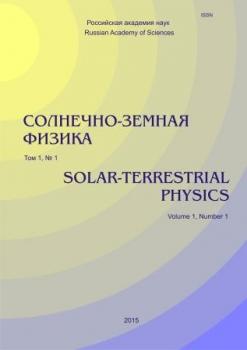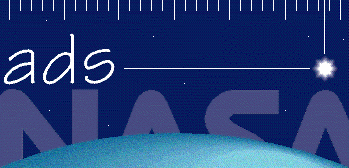Irkutsk, Russian Federation
Irkutsk, Russian Federation
The paper presents the results of recording of acoustic waves, caused by the Hunga Tonga volcano eruption in the South Pacific Ocean on January 15, 2022, in Eastern Siberia at a distance of about 11230 km from the eruption. The received acoustic signal is interpreted as a set of atmospheric waves in a wide range of oscillations. The structure of the signal is similar to signals from the previously known powerful sources: the thermonuclear explosion on Novaya Zemlya in 1961 and the explosion of the Tunguska meteorite in 1908. The acoustic signal was preceded by three trains of low-frequency damped oscillations. We assume that these three trains of oscillations are associated with three important stages in the Hunga Tonga volcano eruption: 1) destruction of Tonga island and formation of an underwater caldera; 2) release of hot magma from the caldera to the ocean surface and release of a large volume of superheated steam into the atmosphere 3) formation of a layered structure from a mixture of superheated steam, ash, and tephra on the ocean surface and formation of an eruptive convective column. Successive phases of the eruption might have contributed to the excitation of acoustic vibrations in a wide range of periods including Lamb waves, internal gravity waves (IGW), and infrasound. We compare the structure of the acoustic signal received in Siberia at a distance of more than 11000 km from the volcano and that of the acoustic signal recorded in Alaska at a distance of more than 9300 km. Using the solution of the linearized Korteweg — de Vries equation, we estimate the energy released during the volcanic eruption.
atmosphere, acoustic wave, Lamb wave, infrasound, volcanic eruption, Tunguska meteorite, homogeneous atmosphere, eruption energy
1. Adam D. Tonga volcano eruption created puzzling ripples in Earth’s atmosphere. Nature. 2022, vol. 601, p. 497. DOI:https://doi.org/10.1038/d41586-022-00127-1.
2. Adushkin V.V., Rybnov Yu.S, Spivak A.A. Geophysical effects of the eruption of Hunga-Tonga-Hunga-Haapai volcano on January 15, 2022. Doklady Earth Sci. 2022, vol. 504, no. 2, pp. 362-367. DOI:https://doi.org/10.1134/s1028334x22060034.
3. Astafyeva E., Maletckii B., Mikesell T.D., Munaibari E., Ravanelli M., et al. The 15 January 2022 Hunga Tonga eruption history as inferred from ionospheric observations. Geo-phys. Res. Lett. 2022, vol. 49, e2022GL098827. DOI:https://doi.org/10.1029/2022GL098827.
4. Brachett N., Brown D., Mialle P., Le Bras R., Coyne J., Given J. Monitoring the Earth’s Atmosphere with the Global IMS Infrasound Network. Geophysical Research Abstracts. 2010, vol. 12, EGU2010-10773.
5. Calais E., Minster J.B., Hofton M.A., Hedlin H. Ionospheric signature of surface mine blasts from Global Positioning System measurements. Geophysical Journal International. 1998, vol. 132, iss. 1, pp. 191-202. DOI:https://doi.org/10.1046/j.1365-246x.1998.00438.x.
6. Carpenter E.W., Harwood G., Whiteside T. Microbarograph records from Russian large nuclear explosions. Nature. 1961, Vol. 192, no. 4805, p. 847.
7. Dessler A.J. Infrasonic thunder. J. Geophys. Res. 1973, vol. 78, no. 12, pp. 1889-1896.
8. Dobrynin V.A., Sorokin A.G. Atmospheric effects of the volcano Tonga eruption. Sbronik trudov XXXV sessii Rossiiskogo akusticheskogo obshchestva. [Proc. the XXXV Session of the Russian Acoustic Society]. Moscow, GEOS Publ., 2023. DOI:https://doi.org/10.34756/GEOS.2023.17.38487. (In Russian).
9. Dolgikh G., Dolgikh S., Ovcharenko V. Initiation of infrasonic geosphere waves caused by explosive eruption of Hunga Tonga-Hunga Haapai volcano. Journal of Marine Science and Engineering. 2022, vol. 10, 1061. DOI:https://doi.org/10.3390/jmse10081061.
10. Donn W.L., Ewing M. Atmospheric waves from nuclear explosions. Part II. The Soviet Test 30 October, 1961. J. Atmos. Sci. 1962, vol. 19, iss. 3, pp. 264-273.
11. Duncombe J. The surprising reach of Tonga’s giant atmospheric waves. Eos. 2022. DOI:https://doi.org/10.1029/2022EO220050.
12. Edwards W.N., Brown P.G., ReVelle D.O. Estimates of meteoroid kinetic energies from observations of infrasonic airwaves. J. Atmos. Solar-Terr. Phys. 2006, vol. 68, pp. 1136-1160. DOI:https://doi.org/10.1016/j.jastp.2006.02.010.
13. Fee D., Matoza R.S. An overview of volcano infrasound: From hawaiian to plinian, local to global. J. Volcanology and Geothermal Res. 2013, vol. 249, pp. 123-139. DOI:https://doi.org/10.1016/j.jvolgeores.2012.09.002.
14. Garrett C.J.R. Atmospheric edge waves. Quart. J. Roy. Meteorological Soc. 1969, vol. 95, pp. 731-753.
15. Garova E., Ferapontov I. Four signals of Hunga-Tonga Hunga-Haapai. The volcano explosion in the Pacific Ocean as looked from Moscow. N Plus. 21.01.2022. URL: https://nplus1.ru/material/2022/01/21/tonga (accessed June 12, 2023). (In Russian).
16. Gordeev E.I., Firstov P.P., Makhmudov E.R., Kulichkov S.N. Infrasonic waves from volcanic eruptions on the Kamchatka peninsula. Izvestiya, Atmospheric and Oceanic Physics. 2013, vol. 49, no. 4, pp. 420-431. DOI:https://doi.org/10.1134/S0001433813030080.
17. Gossard E., Hook U. Waves in the Atmosphere. Moscow, Mir, 1978, p. 532. (In Russian).
18. Gostintsev Ju.A., Ivanov E.A., Anisimov S.V., Pedanov M.V., Kulichkov S.N., Morduhovich M.I., et al. On the mechanism of generation of infrasound waves in the atmosphere by strong fires. Doklady Akademii nauk [Proceeding of Academy of Science USSR]. 1985, vol. 283, no. 3, pp. 573-576. (In Russian).
19. Harkrider D.C. Theoretical and observed acoustic-gravity waves from explosion sources in the atmosphere. J. Geophys. Res. 1964, vol. 69, no. 24, pp. 5295-5321.
20. Heki K. Explosion energy of the 2004 eruption of the Asama Volcano, central Japan, inferred from ionospheric disturbances. Geophys. Res. Lett. 2006, vol. 33, iss. 14, L14303. DOI:https://doi.org/10.1029/2006GL026249.
21. Kulichkov S.N. On the propagation of Lamb waves in the atmosphere over the surface. Izvestiya AN SSSR. Fizika atmosfery i okeana [Izvestiya of Academy of Science USSR. Atmospheric and Oceanic Physics]. 1987, vol. 23, no. 12. (In Russian).
22. Kulichkov S.N., Chunchuzov I.P., Popov O.E., Gorchakov G.I., Mishenin A.A, Perepelkin V.G., Bush G.A., et al. Acoustic-gravity Lamb waves from the eruption of the Hunga-Tonga-Hunga-Hapai volcano, its energy release and impact on aerosol concentrations and tsunami. Pure and Applied Geophysics. 2022, vol. 179, pp. 1533-1548. DOI:https://doi.org/10.1007/s00024-022-03046-4.
23. Maeda K., Young J.J. Propagation of the Pressure Waves Produced by Auroras. Journal of Geomagnetism and Geoelectricity. 1966, vol. 18, no. 2, pp. 275-299.
24. Martines-Bedenko V., Pilipenko V., Shiokawa K., Akbashev R. Electromagnetic ULF/ELF oscillations caused by the eruption of the Tonga volcano. Solar-Terr. Phys. 2023, vol. 9, iss. 1, pp. 47-55. DOI:https://doi.org/10.12737/stp-91202306.
25. Matoza R., Fee D., Assink J., Lezzi A., Green D., et al. Atmospheric waves and global seismoacoustic observations of the January 2022 Hunga eruption, Tonga. Science. 2022, vol. 377, iss. 6601, pp. 95-100. DOI:https://doi.org/10.1126/science.abo7063.
26. Pasko V.P. Mechanism of infrasonic pulses from thunderclouds. J. Geophys. Res. 2009, vol. 114, D08205. DOI:https://doi.org/10.1029/2008JD011145.
27. Pierce A.D., Pousey J.W. Theory of excitation and propagation of Lamb’s atmospheric edge mode from nuclear explosions. Geophys. J. Roy. Astron. Soc. 1971, vol. 26, pp. 341-368.
28. ReVelle D.O. Historical detection of atmospheric impacts by large bolides using acoustic-gravity waves. Annals of the New York Academy of Sciences. 1997, vol. 822, pp. 284-302. DOI:https://doi.org/10.1111/j.1749-6632-1997.tb48347.xS.
29. Rybnov Yu.S., Soloviev S.P., Krasheninnikov A.V., Rybnov S.Yu. Geophysical fields variations during the eruption of the Hunga-Tonga-Hunga-Haapai volcano on January 15, 2022. Dinamicheskie protsessy v geosferakh [Dynamic Processes in Geospheres]. 2023, vol. 15, no. 1, pp. 63-72. DOI:https://doi.org/10.26006/29490995_2023_15_1_63. (In Russian).
30. Sorokin A.G. Infrasonic radiations Chelyabinsk meteoroid. Solnechno-zemnaya fizika [Solar-Terr. Phys.]. 2013, vol. 24, pp. 58-63. (In Russian).
31. Sorokin A.G., Dobrynin V.A. Method of studying infrasound waves from thunderstorms. Solar-Terr. Phys. 2022, vol. 8, iss. 1, pp. 62-68. DOI:https://doi.org/10.12737/stp-81202208.
32. Thurin J., Tape C., Modrak R. Multi-Event Explosive Seismic Source for the 2022 Mw 6.3 Hunga Tonga Submarine Volcanic Eruption. The Seismic Records. 2022, vol. 2, iss. 4, pp. 217-226. DOI:https://doi.org/10.1785/0320220027.
33. Vergoz J., Hupe P., Listowski C., Le Pichon A., Garcés M.A., Marchetti E., et al. IMS observations of infrasound and acoustic-gravity waves produced by the January 2022 volcanic eruption of Hunga Tonga: A global analysis. Earth and Planetary Science. 2022, vol. 591, 117639. DOI:https://doi.org/10.1016/j.epsl.2022.117639.
34. Wright C.J., Hindley N., Alexander M.J., Barlow M., Hoffmann L., Mitchell C., et al. Tonga eruption triggered waves propagating globally from surface to edge of space. Earth and Space Science Open Archive. 2022, vol. 609, iss. 7928, pp. 741-746. DOI:https://doi.org/10.1002/essoar.10510674.1.
35. Liu X., Xu J., Yue J., Kogure M. Strong gravity waves associated with Tonga volcano eruption revealed by SABER observations. Geophys. Res. Lett. 2022, vol. 49, iss. 10, e2022GL098339. DOI:https://doi.org/10.1029/2022GL098339.
36. Yamomoto R. The microbarographic oscillations produced by the explosions of hydrogen bombs. Bull. Inst. Chem. Res. Kyoto Univ. 1954, vol. 32, pp. 120-133.
37. Yerushchenkov A.I., Filippov A. Kh., Makukhin V.L. Infrasound waves from lightning discharge. Issledovaniya po geomagnetizmu, aeronomii i fizike Solntsa [Res. on Geomagnetism, Aeronomy and Solar Physics]. 1976, iss. 38, pp. 73-78. (In Russian).
38. URL: https://twitter.com/NWSAlaska/status/1482431322740060162?cxt=HHwWhMCrveHb05IpAAAA (accessed June 12, 2023; 2023).
39. URL: https://www.reuters.com/graphics/TONGA-VOLCANO/ LIGHTNING/zgpomjdbypd/ (accessed June 12, 2023).



















